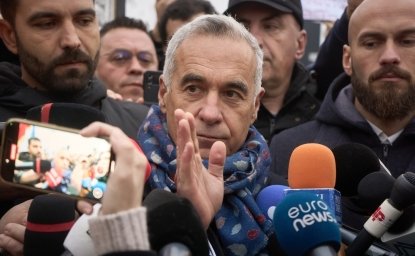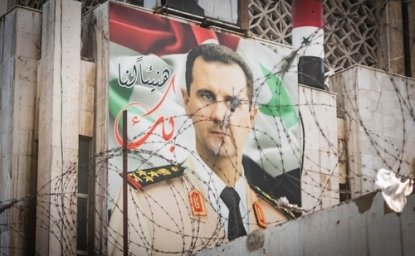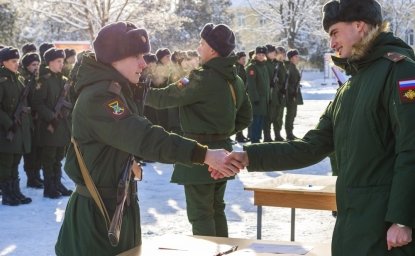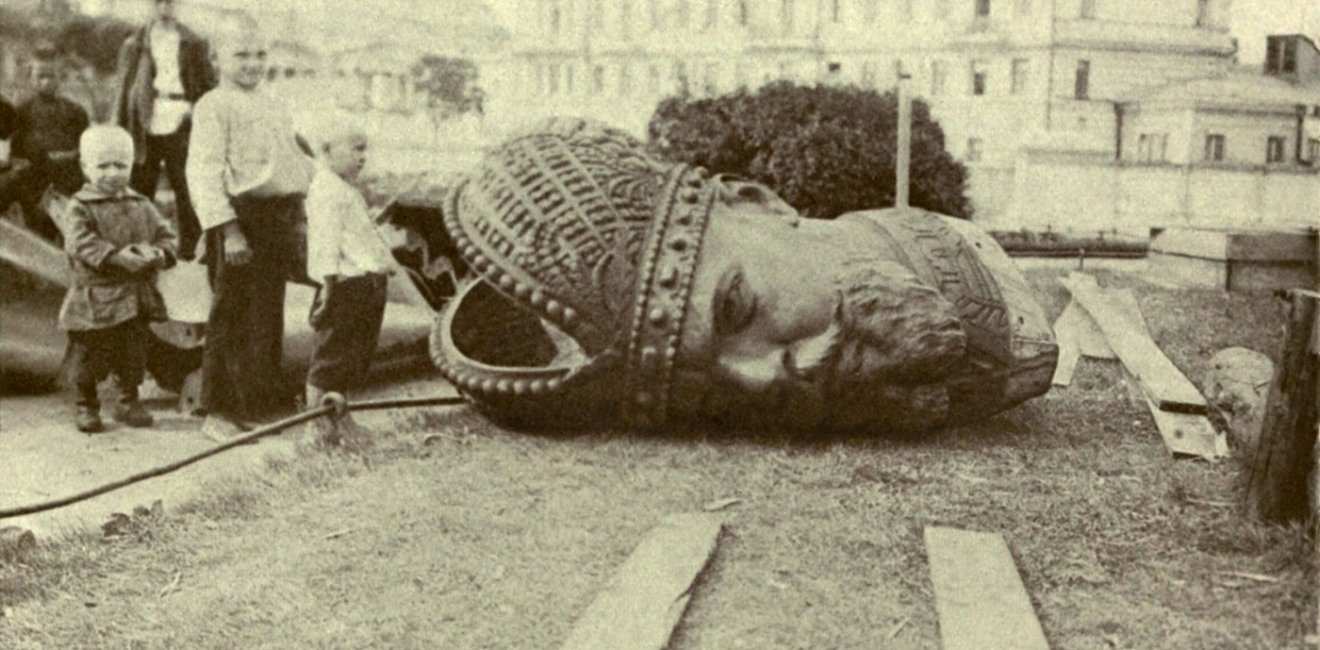
A blog of the Kennan Institute
When it comes to the future of Russia, one set of questions bothers people both within the country and beyond. It boils down to these: Will Russia curb its expansionist ambitions? Will the empire fall apart? Will Russia stop being a threat to the world?
Stopping Russia’s war of aggression against Ukraine is a necessary step in order to get a yes on all three, but hardly sufficient.
The imprisoned opposition leader Alexey Navalny wrote an article on the subject. Garry Kasparov and Mikhail Khodorkovsky, exiled politicians, published their own takes on the same theme. Even before the invasion, Leonid Gozman, a politician who was briefly imprisoned and subsequently left Russia, discussed at length the importance of dismantling Russia’s imperialistic foreign policy. Countless Russian émigrés in the former Soviet republics (essentially former colonies), and dissidents who remain in Russia talk about it all the time (although not enough, according to their neighbors from the former republics).
There is a pattern to this response. Only emigrants, who are safely beyond the grasp of the regime, and dissidents, who are within its grasp but choose bravely to defy it, can discuss a future post-imperial Russia out loud and without self-censorship. For that reason, emigrants and dissidents are ones whom foreign media most often approach for interviews. After all, they are the only Russians willing to speak at all. They are also perceived as representative of another Russia, a benign and forward-looking version of the country.
My problem is that I doubt that this other Russia exists. Or, to put it differently, it is too early to tell whether Russia is capable of genuine change.
Inherent Imperialism?
Many emigrants, of course, are experts in their respective fields, while some are experts in Russian studies. They are good at communicating knowledge. But hands-on knowledge of Russian politics and society is rapidly dwindling owing to a lack of access. And emigrants’ judgment is often clouded: they look at their country through glasses tinted by ideological preferences, possibly bitterness, and, frequently, the expectations of the host society.
What about those who remain in Russia yet have spoken out on the subject? Alexey Navalny is deservedly the best known among them, but he is not the only one. These courageous people every day save the faces of all the rest—those who have fled and those who keep silent. Unlike the emigrants, they have some chance to actually affect Russian politics one day, which is why the outside world pays attention to whatever they have to say.
As a Russian, I immensely admire Navalny—not only for his courage but for his incredible ability to change. His writings, his behavior, and his intonations today bring to mind Nelson Mandela. In his latest manifesto, Navalny reiterated that his strategic goal was to build a Russia that is unwilling to start wars and finds no profit in waging them. He went on to say that a future Russia must recognize the borders of Ukraine as they were designated in 1991. That includes Crimea and all the other Ukrainian territories currently occupied by Russia. Navalny also said that a future Russia must pay reparations and make amends.
Yet many politicians from Russia’s former colonies do not trust him. He was known for nationalist views, they say, and he was once ambiguous on the question of Crimea. According to them, he is just another incarnation of the same imperialistic evil in a new wrapper. The disagreement over Navalny (and the possibility of a nonexpansionist Russia at all) comes down to the question, has he truly changed?—a question that is notoriously impossible to answer about anyone, anywhere. Whatever admiration I personally have for Navalny, his critics have a point.
There were at least two cases in Russian history when legacy regimes fell and the country completely changed. In 1917 the Romanovs were replaced by the Provisional Government and then by Bolsheviks, all within a span of seven months. In 1991 the Soviet Union fell. What happened to expansionist reflexes after opposition figures replaced their predecessors?
The short answer is, nothing. The Provisional Government quickly became the main warmonger in an empire fed up with war. Aleksandr Kerensky became head of the Provisional Government by literally advertising the war. It took Vladimir Lenin, who came to power on the promise of unconditional peace, just a few years to restore the empire almost to its full extent. Boris Yeltsin was sponsoring the war in Abkhazia just a few months after he co-signed the document dissolving the USSR. It seems that whoever slays the dragon quickly grows his own scales.
The Myth of Two Russias
This observation is not mine. I first encountered it in an article by the Georgian historian Otar Janelidze. Aptly titled “Two Russias (Myth or Reality?),” it offers an outside view on the question that bothers so many people in Russia too. Is there another Russia? Janelidze observes that at almost any point in the history of Georgian-Russian relations, there was a sizable fraction in Georgia that sought to find a friendly counterpart in Russia. If a governor was bad, then perhaps the emperor might prove benevolent. If the emperor was senseless, maybe the intelligentsia could be an ally. Surely the revolutionaries could be relied on to share Georgians’ love of freedom! But every time, the hope was in vain. Governors colluded with the court, the intelligentsia didn’t give a damn about Georgian freedom and culture, and revolutionaries quickly turned into oppressors. Whatever happened in the metropole, the colonies just kept suffering.
It was true throughout the empire. At a demonstration in Warsaw during the 1830–31 Polish uprising, people carried banners with the words “For our freedom and yours.” It was written in both Polish and Russian and was meant, in part, to extend support to the Decembrists—members of the Russian upper class who rebelled against the tsar and were hanged or sentenced to hard labor in Siberia. You get your freedom and we get ours, they seemed to say. But the nice gesture was far from mutual. Even though many exiled Decembrists supported the Polish cause, the majority of liberal-minded Russians took pride in Russia quelching the uprising. For the next many decades, the only people to support the independence of Poland were either emigrants (like Aleksander Herzen) or prisoners. This pattern does not change in Russia.
Whoever is actually involved in Russian politics, if and when this war is lost, will have to deal with a host of internal problems: a crumbled economy, reparations, the veterans’ lobby, rising crime, and elusive public support. Ending imperialism would not be a high priority, even for the most anticolonial types. So it is too early to believe even the most honest Russian politician predicting that Russia will genuinely change.
But if the world cannot believe the emigrants and the dissidents, and the rest are silent, who can be believed? If Russia is going to truly change, the answer is pretty obvious. We will know it is changing when the ideas about Russia’s future start to come from new sources. Not just from Moscow or Berlin but from the republics within Russian Federation’s current borders, from their separatist politicians, as well as from the former Soviet republics, demanding a revision of history. And from the politicians who do not want to take office in Moscow because Moscow, in their opinion, should be abroad. When the Kremlin, with its good or bad inhabitants, ceases to be the guarantor of the security of the conquered people.
Judging from what I see, it is already happening.
The opinions expressed in this article are those solely of the author and do not reflect the views of the Kennan Institute.
Author

Journalist; Host of “Snova Nikogda” podcast

Kennan Institute
The Kennan Institute is the premier US center for advanced research on Eurasia and the oldest and largest regional program at the Woodrow Wilson International Center for Scholars. The Kennan Institute is committed to improving American understanding of Russia, Ukraine, Central Asia, the South Caucasus, and the surrounding region though research and exchange. Read more

Explore More in The Russia File
Browse The Russia File
In Search of Russia’s Digital Trace in Romania’s Political Crisis

With Syria’s Collapse Russia’s Regional Power Play Disintegrates

Putin's Strategy Tests Europe's Defense Limits

